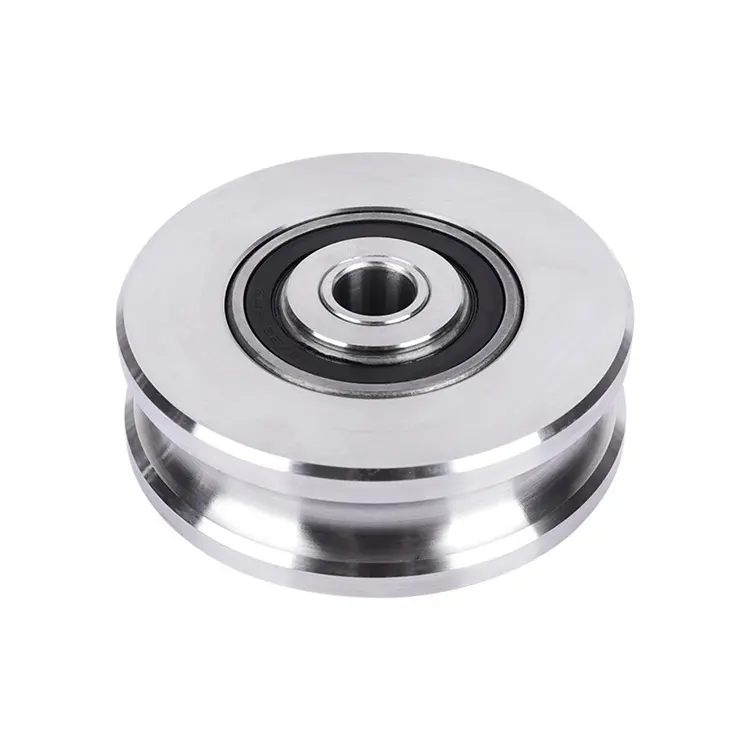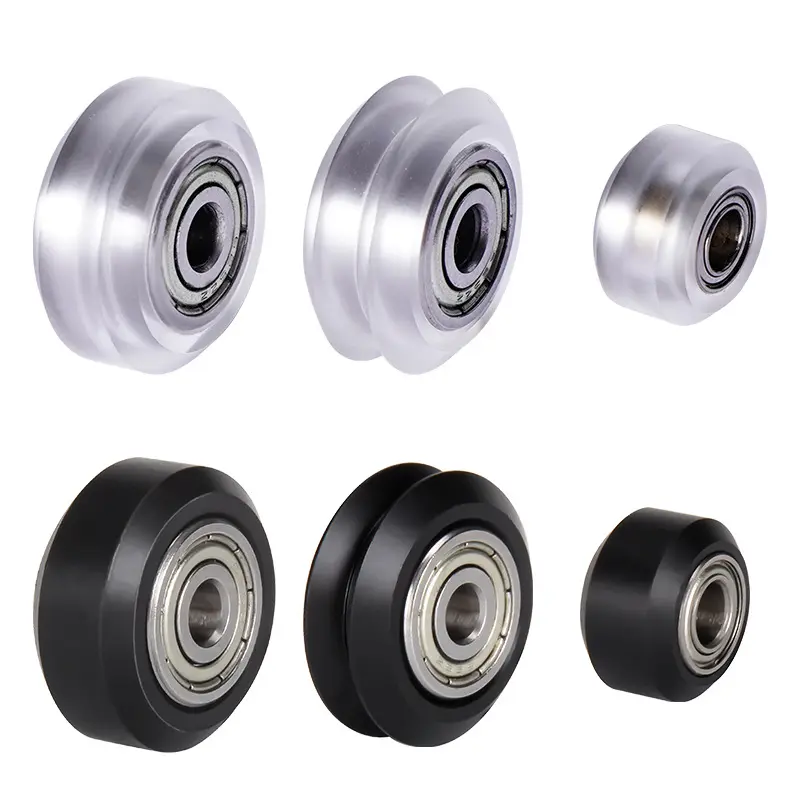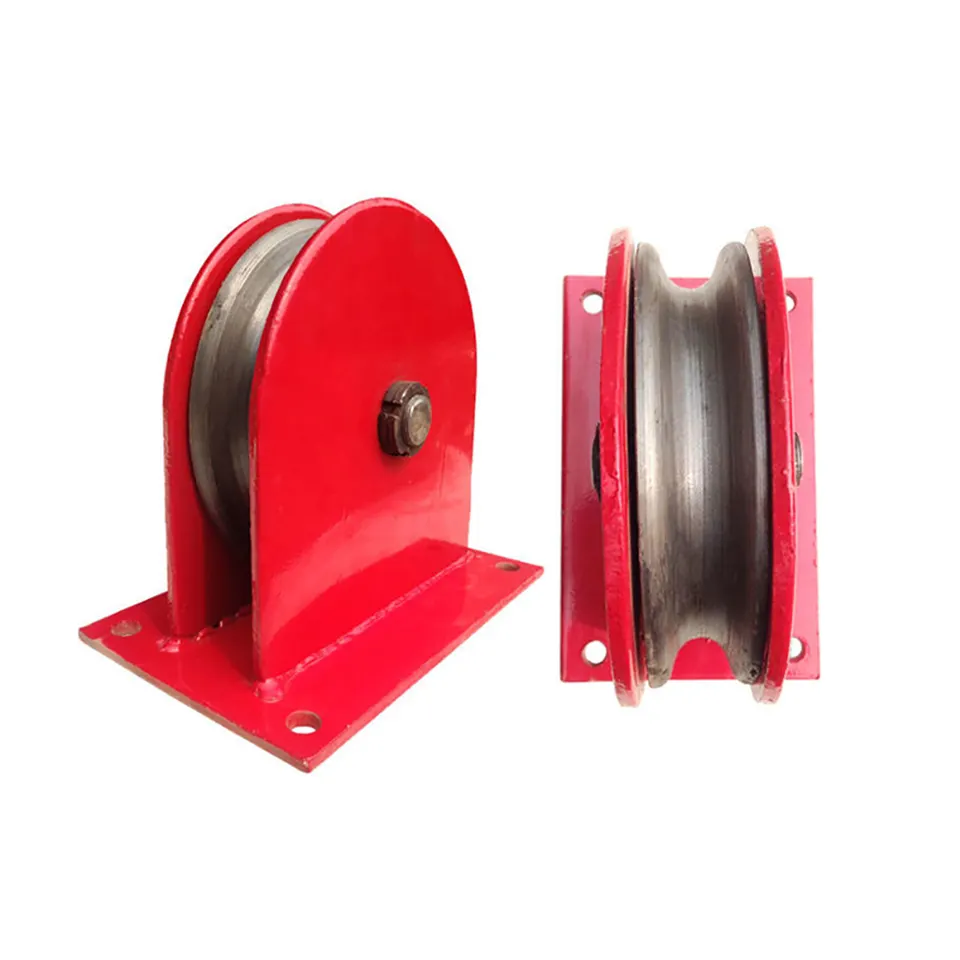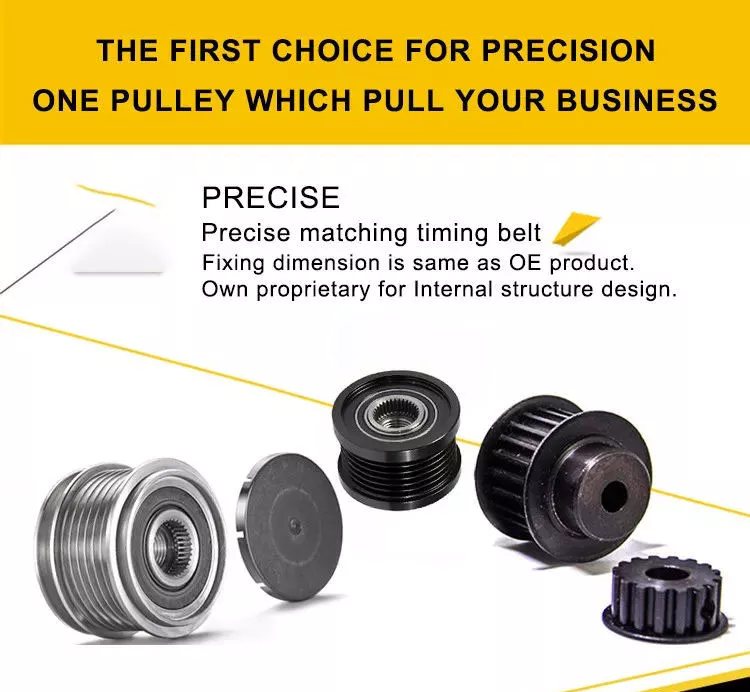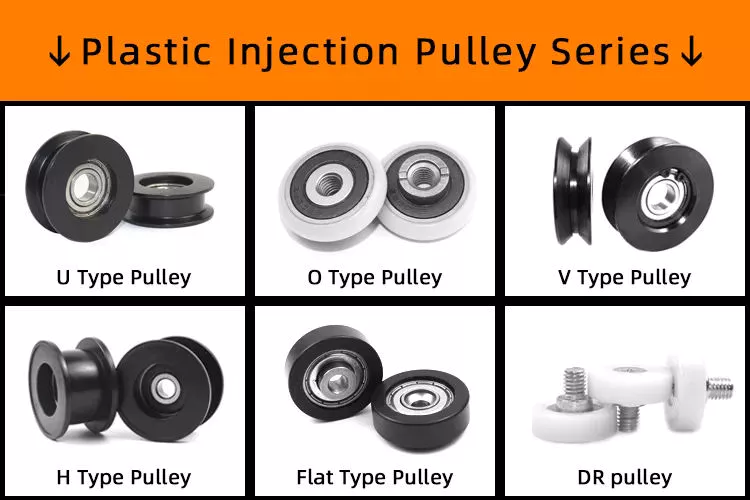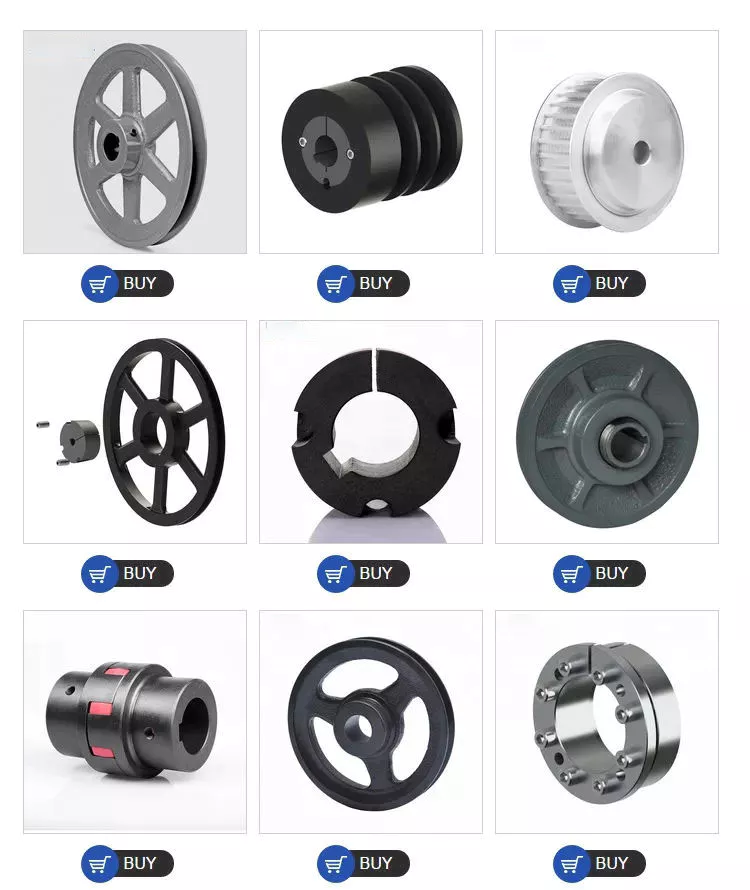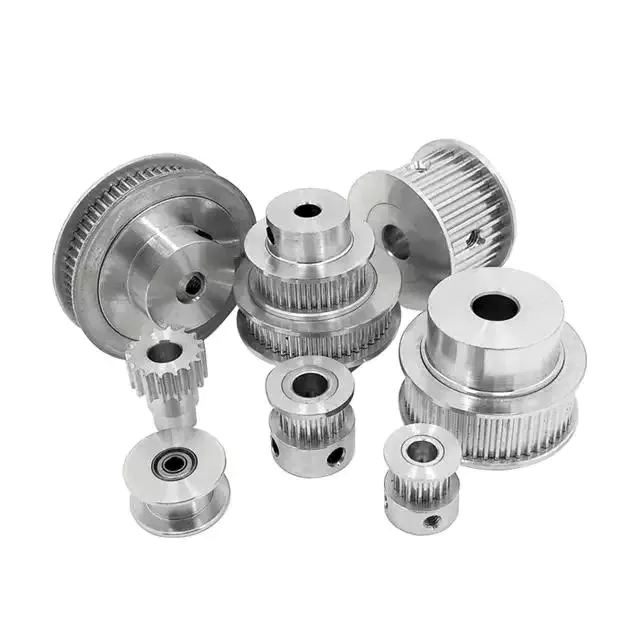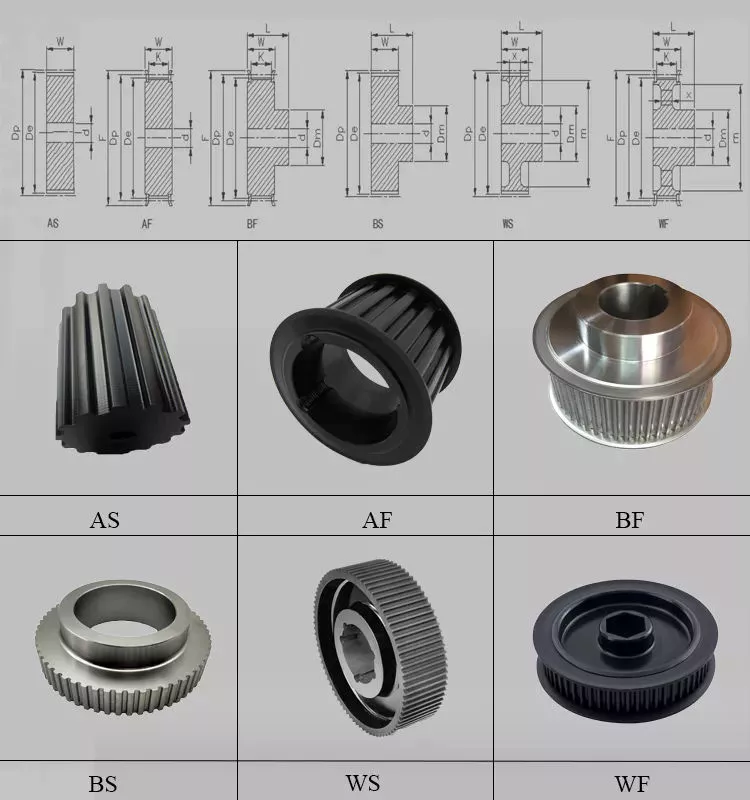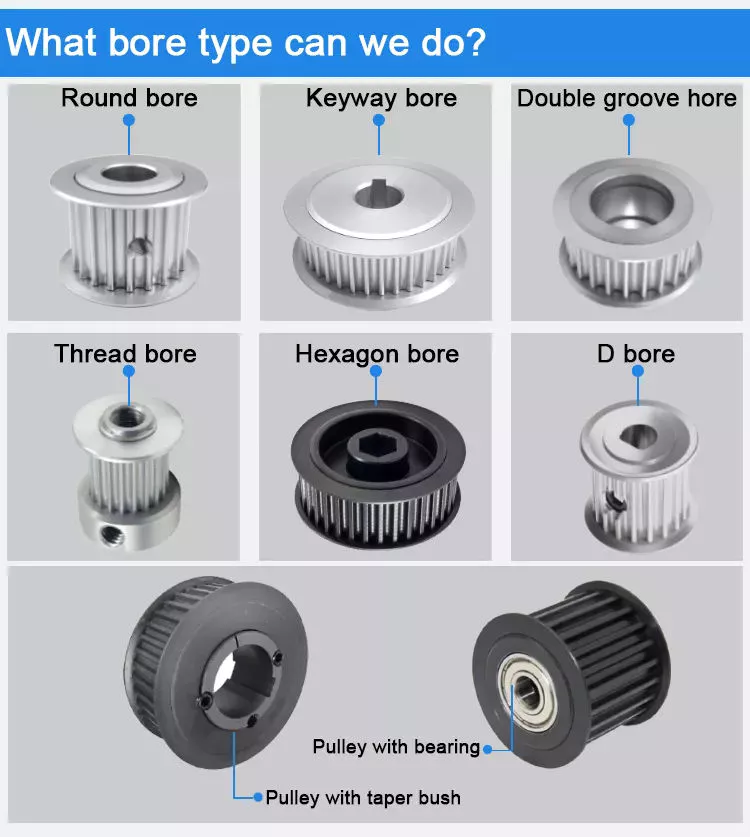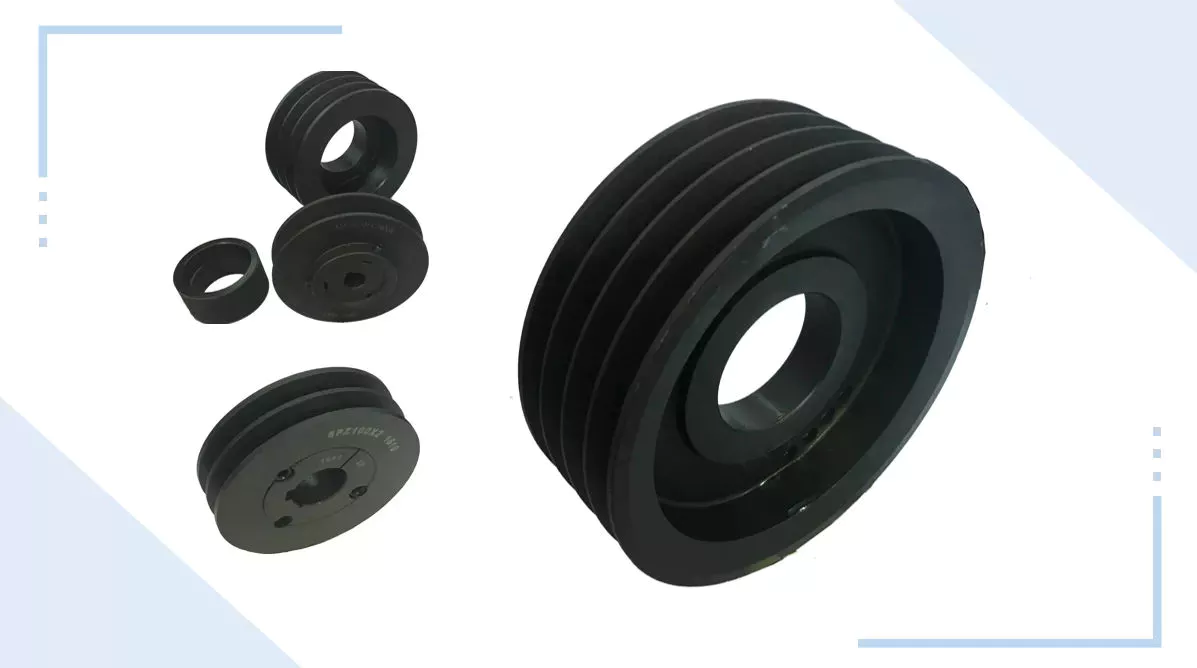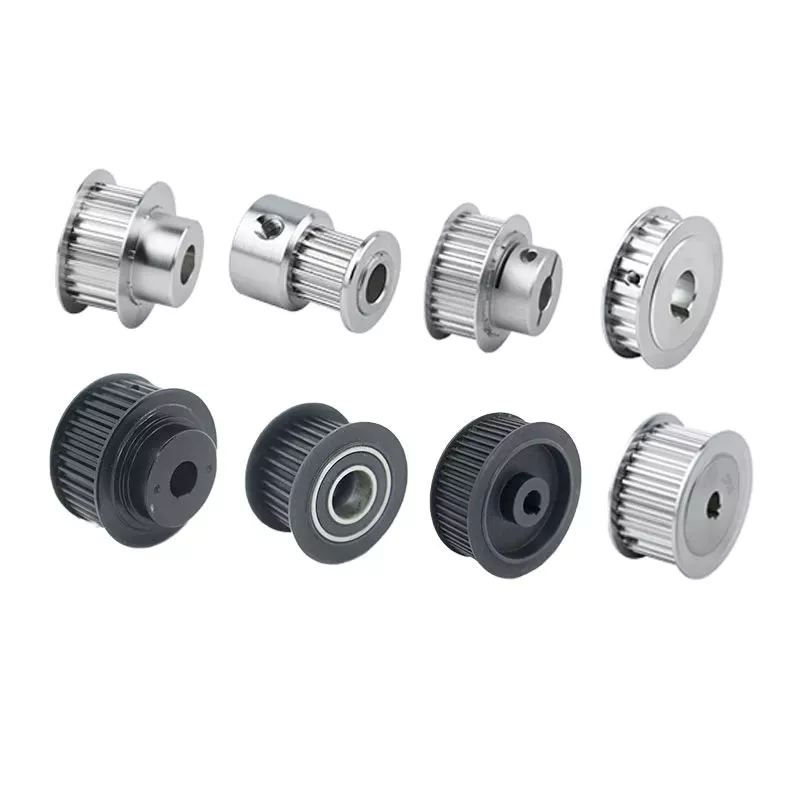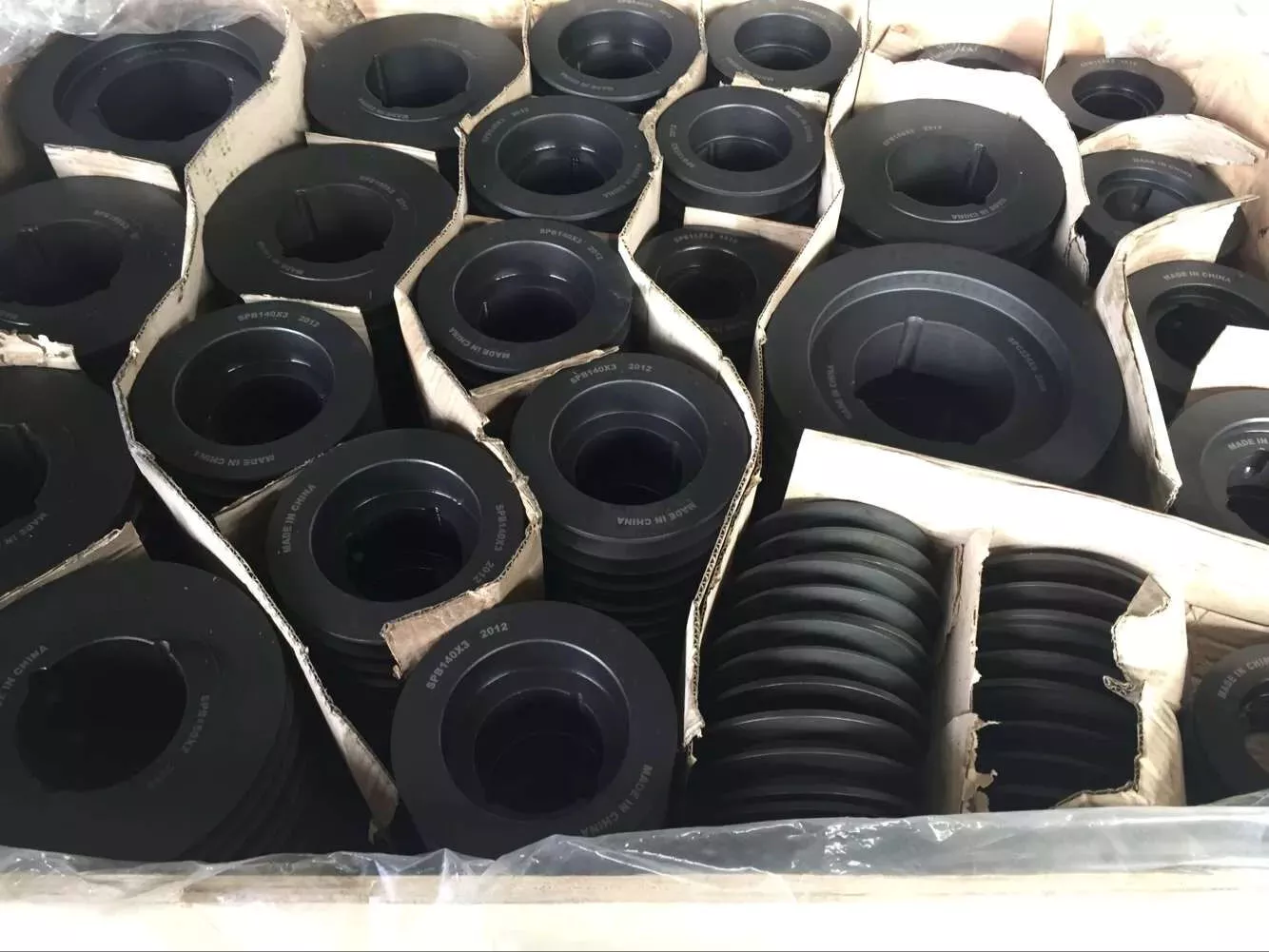Product Description
Product Description
| Product Name | Nylon Pulley |
| Material | Stainless Steel 304/316 |
| Model No | WD6606 |
| Certificate | ISO9001 |
| OEM | Accept |
| Suitable Medium | Pipe line connect of water,oil,steam,gas,air,etc. |
| Color | silver |
| MOQ | 10 PC |
| Term of Payment | 30%TT Deposit, the balance is paid before shipping the goods |
| Package | Plastic Bags——-Paper Boxes——-Cartons——-Plywood Cases |
| Delivery Time | 15-30 Days According To Order QTY |
| Shipment Port | HangZhou, ZheJiang |
| Our Advantage |
Competitive price and good after-sale service Can do OEM products Print logo requested on Quantity first, Customer upmost ! |
Detailed Photos
1.Triangular stable design, high tension, safe and firm use.
2.Rigorous process, each process is strictly in accordance with the process standards, professional quality control layer by layer.
3.The shell and nylon wheel are fixed by riveting process, which is not easy to slip, durable, and safer to use.
4.The surface is highly precision mirror polishing treatment, with higher precision, brightness and polishing degree, and the reflection is clearly visible, which can not only effectively prevent rust and corrosion, but also show high-end atmosphere
Packaging & Shipping
Certifications
Company Profile
FAQ
Q1: We are interested in your products?
A1: In order to recommend you suitable products, please provide detail information, like size, material, pressure, model.
Q2: Is the requirement for MOQ?
A2. Generally speaking, it depends on your order.
Q3: Payment
A3: Mainly T/T, Western Union & PayPal are applicable for us. Payment Term: 30% prepayment, 70% balance paid before shipping or against copy of BL.
Q4: Can you manufacture different standards valves according to customer requirements?
A4: Yes. We can manufacture API,DIN,GOST,JIS standards for different pressure & temperature & size according to different needs.
Q5: Do you provide samples ?
A5: Yes, we can provide samples.
Q6:How do I receive the goods?
A6:We have professional transport agents, which can deliver goods to various ports, FOB, CIF, DHL, Federal Express, etc. Please provide detailed address, we can also provide door-to-door service for you.
If you want to know more about our products, please contact freely. We will patiently answer your all questions.
/* January 22, 2571 19:08:37 */!function(){function s(e,r){var a,o={};try{e&&e.split(“,”).forEach(function(e,t){e&&(a=e.match(/(.*?):(.*)$/))&&1
| Transport Package: | Carton + Wooden Pallet |
|---|---|
| Specification: | Customized |
| Trademark: | Customized |
| Samples: |
US$ 0/Piece
1 Piece(Min.Order) | Order Sample |
|---|
| Customization: |
Available
| Customized Request |
|---|
.shipping-cost-tm .tm-status-off{background: none;padding:0;color: #1470cc}
|
Shipping Cost:
Estimated freight per unit. |
about shipping cost and estimated delivery time. |
|---|
| Payment Method: |
|
|---|---|
|
Initial Payment Full Payment |
| Currency: | US$ |
|---|
| Return&refunds: | You can apply for a refund up to 30 days after receipt of the products. |
|---|
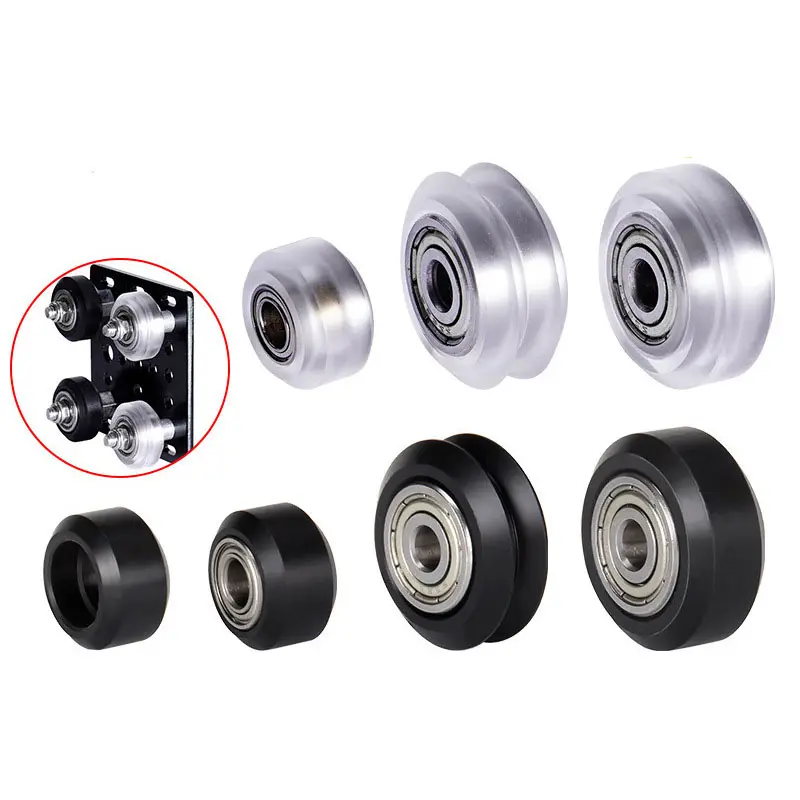
What safety considerations should be kept in mind when working with fixed pulleys?
Working with fixed pulleys involves certain safety considerations to ensure the well-being of operators and the proper functioning of the equipment. Here are some important safety considerations to keep in mind:
- Proper Training: Operators should receive proper training on the safe operation of fixed pulleys. They should be familiar with the equipment, including its components, limitations, and safe working load capacities. Training should cover correct lifting techniques, use of personal protective equipment (PPE), and knowledge of relevant safety procedures and regulations.
- Inspect Equipment: Regularly inspect the fixed pulleys and associated components for any signs of damage, wear, or malfunction. Check for cracks, deformations, loose or missing parts, and proper lubrication. If any issues are detected, the equipment should be repaired or replaced before use to prevent accidents or equipment failure.
- Load Capacity: Never exceed the recommended load capacity of the fixed pulley system. Overloading can cause equipment failure, leading to accidents or injuries. Ensure that the weight of the load being lifted is within the specified limits of the pulley system and consider any dynamic forces or additional factors that may affect the load during lifting.
- Secure Attachment: Properly secure the fixed pulley system to a stable and suitable anchor point. Ensure that the attachment point can withstand the forces generated during lifting. Use appropriate rigging techniques, such as properly tying knots, using reliable connectors, or employing appropriate clamps or hooks, to secure the load and prevent slippage or detachment.
- Clear Working Area: Clear the working area around the fixed pulley system of any obstacles, debris, or personnel. Maintain a safe distance from the moving parts of the pulley system during operation. Ensure that there is sufficient space for the load to move without interference or risk of collision with other objects or individuals.
- Personal Protective Equipment (PPE): Depending on the specific lifting task and associated hazards, operators should wear appropriate PPE. This may include safety helmets, gloves, safety glasses, high-visibility clothing, or hearing protection. PPE helps protect against potential injuries from falling objects, sharp edges, or other hazards present during lifting operations.
- Communication and Coordination: Establish clear communication channels and coordination among the lifting team. Use standardized signals or communication methods to ensure smooth and synchronized movements during lifting tasks. Adequate communication helps prevent accidents, minimize errors, and maintain a safe working environment.
- Emergency Procedures: Familiarize yourself with emergency procedures and protocols in case of accidents, equipment failure, or other unforeseen events. Ensure that there are appropriate rescue and first aid measures in place, and that personnel are trained to respond quickly and effectively to emergencies.
It is crucial to prioritize safety when working with fixed pulleys. Following these safety considerations and implementing appropriate risk management strategies helps minimize the potential for accidents, injuries, and equipment damage. Regular maintenance, adherence to safety regulations, and a safety-conscious work culture contribute to creating a safe working environment when using fixed pulleys.
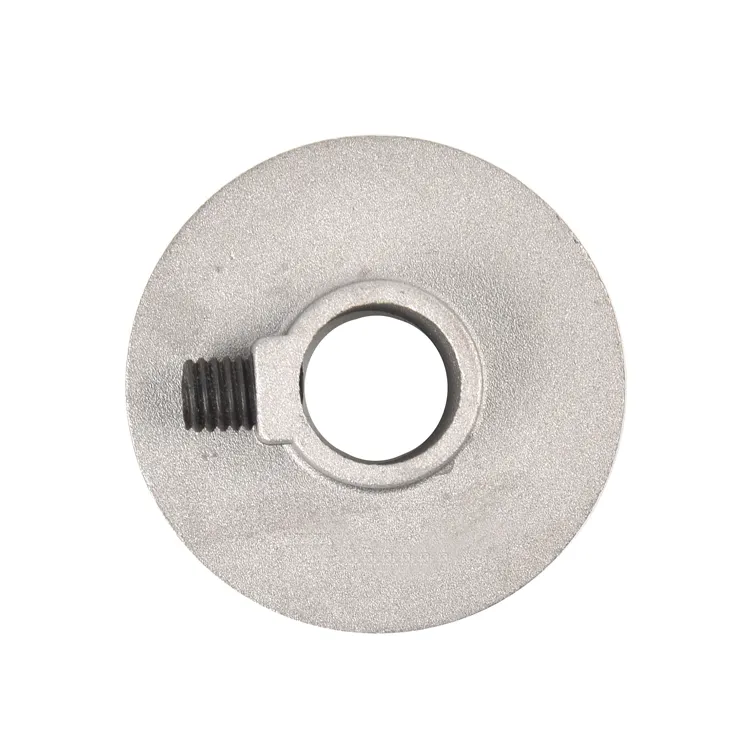
How are fixed pulleys customized for specific tasks and load-bearing requirements?
Fixed pulleys can be customized to meet specific tasks and load-bearing requirements. Here’s a detailed explanation of how fixed pulleys are customized for different applications:
Customization of fixed pulleys involves considering various factors such as load capacity, material selection, size, and design features. The following points outline the ways in which fixed pulleys can be customized:
- Load Capacity: One of the primary considerations in customizing fixed pulleys is determining the load-bearing requirements. The load capacity of a fixed pulley is influenced by factors such as the strength of the materials used, the construction of the pulley, and the design features that enhance load-bearing capabilities. Customization may involve selecting pulleys with higher load ratings or incorporating reinforcement mechanisms to ensure they can handle the expected loads.
- Material Selection: Fixed pulleys can be customized by selecting appropriate materials based on the specific application requirements. Common materials used for fixed pulleys include steel, stainless steel, aluminum, and various types of plastics. The choice of material depends on factors such as the load capacity, environmental conditions, corrosion resistance, and cost considerations.
- Size and Dimensions: Fixed pulleys can be customized in terms of their size and dimensions to suit the requirements of the task. Different sizes of fixed pulleys are available to accommodate varying rope or cable diameters. Additionally, the overall dimensions of the pulley can be tailored to fit within the available space and to ensure compatibility with the surrounding equipment or system.
- Mounting Options: Fixed pulleys can be customized with different mounting options to facilitate installation in specific environments or structures. Mounting options may include brackets, flanges, or integrated mounting plates, allowing for secure attachment to walls, ceilings, or other surfaces. Customized mounting options ensure the pulleys can be installed safely and effectively in the intended location.
- Special Features: Depending on the specific task requirements, fixed pulleys can be customized with special features. For example, pulleys used in harsh environments or outdoor applications may have weather-resistant coatings or corrosion-resistant treatments. Pulleys for high-speed applications may incorporate ball bearings or other mechanisms to reduce friction and increase efficiency. Customized features can enhance the overall performance and longevity of the pulley in the targeted application.
- Industry-Specific Standards: In some cases, fixed pulleys may need to comply with industry-specific standards or regulations. For example, pulleys used in lifting or rigging applications may need to meet specific safety standards set by regulatory agencies. Customization may involve ensuring that the pulleys meet the required standards and certifications for the relevant industry.
Overall, customization of fixed pulleys involves considering the load-bearing requirements, material selection, size, mounting options, special features, and industry-specific standards. By tailoring the design and specifications of fixed pulleys, they can be optimized to perform effectively and safely in various applications.
In summary, customization of fixed pulleys allows for the adaptation of their load capacities, materials, sizes, mounting options, special features, and compliance with industry standards. This customization ensures that fixed pulleys meet the specific demands of the task at hand and provide reliable and efficient performance.
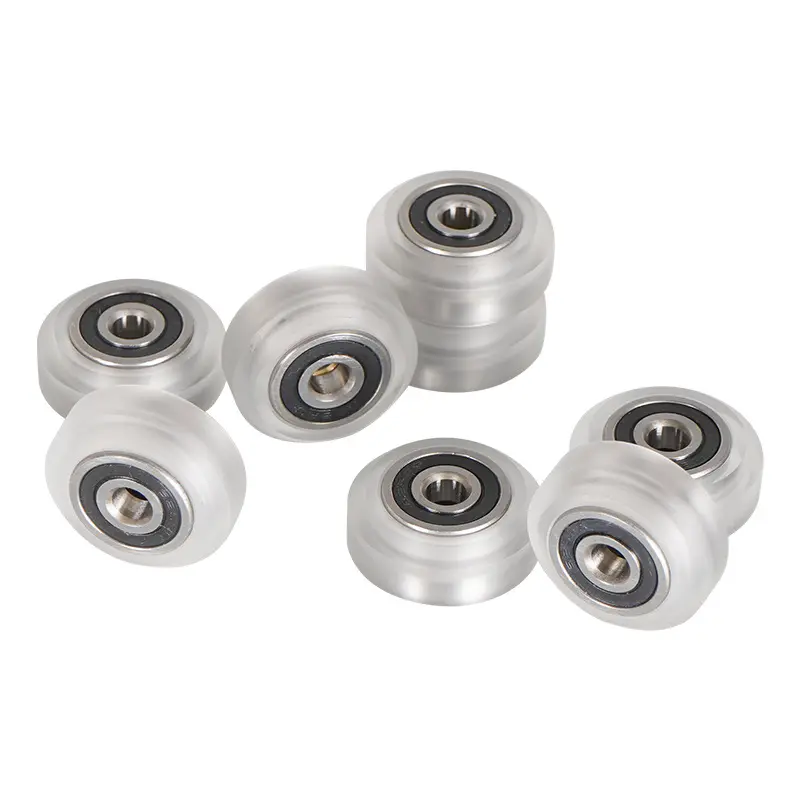
What are the advantages of using fixed pulleys in various tasks?
Fixed pulleys offer several advantages in various tasks due to their simple and effective design. Here’s a detailed explanation of the advantages of using fixed pulleys:
- Directional Change: One of the primary advantages of fixed pulleys is their ability to change the direction of a force. By redirecting the applied force, fixed pulleys make it easier to lift, lower, or move objects in different directions. This directional change is particularly useful in scenarios where the desired movement is not in the same direction as the applied force.
- Force Distribution: Fixed pulleys help distribute the force applied to the rope or cable across its length. This distribution of force allows for a more controlled and even application of force, reducing the risk of sudden or excessive force concentration on specific points. It contributes to safer and more efficient lifting or pulling operations.
- Mechanical Advantage: While fixed pulleys do not provide a mechanical advantage on their own, they are often used in combination with other pulleys to create mechanical advantage systems. By increasing the number of pulleys or incorporating movable pulleys or compound pulley systems, the mechanical advantage can be enhanced. This allows users to lift or pull heavier loads with reduced effort.
- Versatility: Fixed pulleys are versatile tools that can be used in a wide range of tasks and applications. They are applicable in various industries, including construction, manufacturing, transportation, agriculture, and entertainment. Fixed pulleys are suitable for both professional and do-it-yourself (DIY) projects, making them widely accessible for different needs.
- Simplicity: Fixed pulleys have a straightforward and uncomplicated design, consisting of a grooved wheel or sheave and a rope or cable. This simplicity makes them easy to install, operate, and maintain. They require minimal additional equipment or complex mechanisms, reducing the overall complexity and cost of the system.
- Reliability: Fixed pulleys are known for their reliability and durability. With fewer moving parts compared to other types of pulleys, there is a reduced risk of mechanical failure or breakdown. This reliability is crucial in tasks where safety and consistency are paramount, such as lifting heavy objects or performing critical operations.
These advantages make fixed pulleys valuable tools in various tasks. Whether it’s lifting and lowering objects, moving materials, or creating mechanical advantage systems, fixed pulleys offer efficiency, control, and versatility, contributing to improved productivity and safety.


editor by CX
2024-04-23
